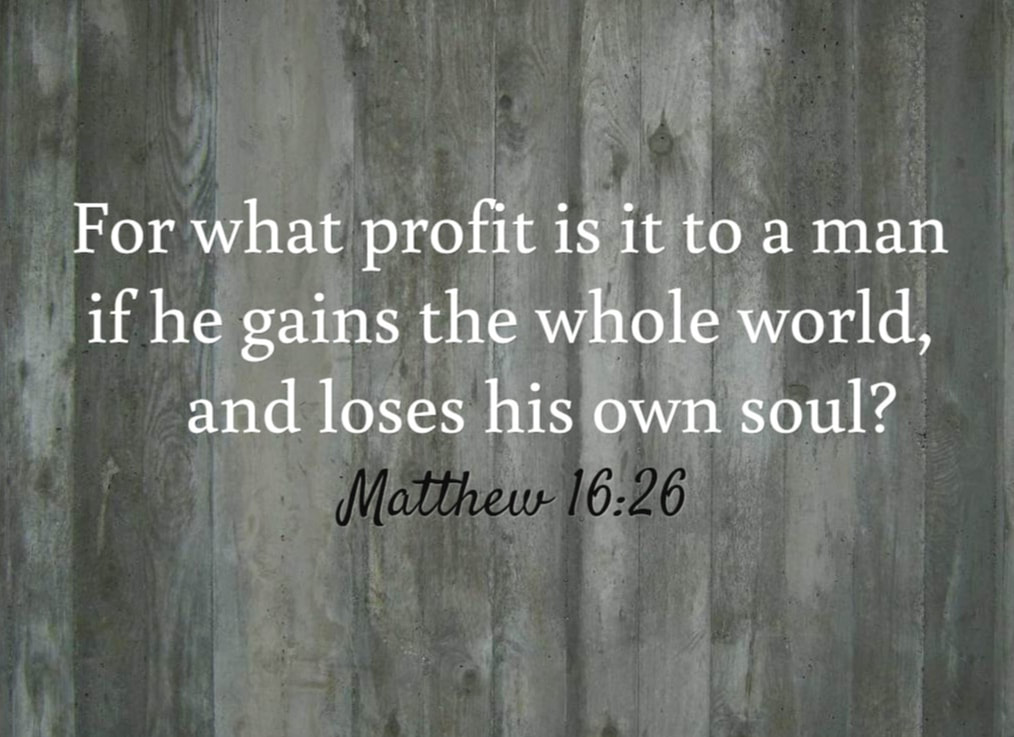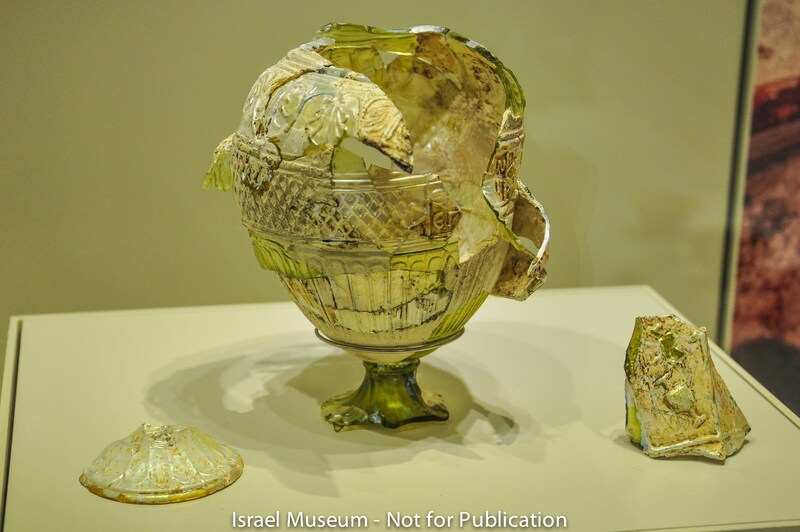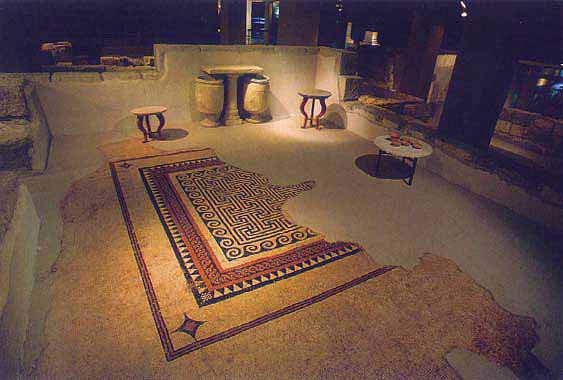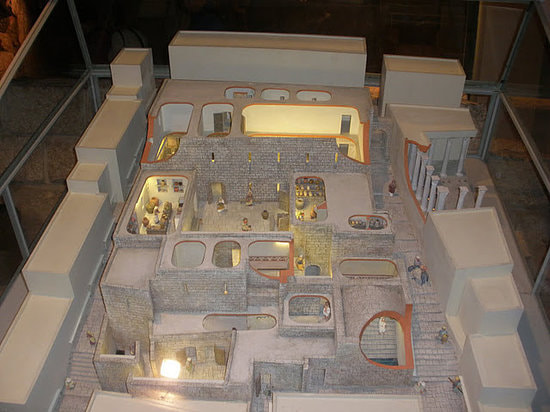| What are we really looking for in life? How you answer that question determines a lot about you. You might do the same things as people around you, but your reasons shape the results. It’s no different when it comes to faith. So much of what we seek from Jesus is determined by what we want out of life itself. I have found over the years that most of us use God to get what we want. Spiritual Narcissism is rampant. We are not looking to get on board with God’s mission, but rather to get God’s help on ours. |
- To be right. We love to “one up” the next person, and the inside scoop on God’s truth gives us that sense of intellectual superiority we long for.
- To get stuff. We mistake our dreams for God’s dream and jump through any religious hoops that might get us the things, the job, the win, or the one that makes us feel fulfilled (at least for a moment until we need more stuff!).
- To feel good about ourselves. We need to feel special, so we often mistake God’s grace for our inherent goodness and pat ourselves on the back with some divinely sanctioned SELF-esteem (when we should be humble and grateful).
- To calm our fears of the future. We don’t like the pressure of facing consequences from our misguided actions, so God becomes a puppeteer who overrides our collective irresponsibility (and many people end up disappointed by the pain in our broken world that God didn’t stop).
God can satisfy the healthy needs behind each of these selfish desires, if we are willing to let him show us how they should be fulfilled. But most of us just want to use God to get what we want; rather than embrace the way he wants us to be.
I tend to default to #1. We all have a spiritually narcissistic tendency. The Sadducees in Jesus’ day got stuck on using God for #2. They wanted big houses and political power with no repercussions for how they acquired them. And they built a theological system to support their pursuit of stuff.
The Sadducees combined extravagant wealth with public displays of religious pageantry, and Jesus wanted no part of it. So he challenged their self-serving philosophy with this self-reflective query: “What do you really benefit if you gain the whole world but lose your soul?”
In Luke 9:22-25, Jesus’ rebuke of “gaining the whole world only to lose yourself” follows on the heels of his prediction that he will suffer at the hands of “the elders and chief priests and scribes.” That’s on purpose. The “chief priests” were the Sadducees in Jerusalem who had colluded with Roman authorities to control the high priesthood. They were pretentious religious leaders who sold their souls for political power. They had exchanged heaven’s values for earthly goods. And they were addicted to that drug of privilege and prosperity.
That’s why Jesus scared the “chief priests.” He threatened their self-advancing arrangement with the Romans. The Gospel of John recounts their chief concern:
"47 Then the leading priests and Pharisees called the high council together. “What are we going to do?” they asked each other. “This man certainly performs many miraculous signs. 48 If we allow him to go on like this, soon everyone will believe in him. Then the Roman army will come and destroy both our Temple and our nation.” 49 Caiaphas, who was high priest at that time said, “You don’t know what you’re talking about! 50 You don’t realize that it’s better for you that one man should die for the people than for the whole nation to be destroyed.” 53 So from that time on, the Jewish leaders began to plot Jesus’ death." (John 11:47-50, 53 NLT)
The plot to kill Jesus in Jerusalem doesn’t originate from theological or ethical disagreement. It wasn’t an issue with his interpretation of Torah or his politics. It was a matter of privilege. The power players wanted to preserve their privileged place in society. And Jesus threatened that economic arrangement with the Romans that made things better for them.
The Final Hour in a Big Mansion
Jesus’ final hours fittingly unfold in the luxurious mansions of the high priestly families who didn’t want to lose their nice things. Matthew 26:57-58 describes the setting for Jesus’ first interrogation after his arrest
57 Then the people who had arrested Jesus led him to the home of Caiaphas, the high priest, where the teachers of religious law and the elders had gathered. 58 Meanwhile, Peter followed him at a distance and came to the high priest’s courtyard. He went in and sat with the guards and waited to see how it would all end.
But as for the high priest, Ananias, he increased in glory every day, and this to a great degree, and had obtained the favor and esteem of the citizens in a signal manner; for he was a great hoarder of money.
Is the Palatial Mansion the Palace of Annas? We don’t know for sure. Josephus tells us in War 2.426 that Annas’ Palace was burnt with the Palace of Agrippa and Bernice in A.D. 70, and the mansion does contain burn scars. However, most of the buildings in the Upper City were burnt, and multiple sites have been identified as possible candidates for the Palace of Annas. Regardless of which priestly family owned it, the home does represent the same level of opulence we would expect of Annas.
The Palatial Mansion’s size (13,000 square feet) and its features have no parallel in any building in Jerusalem or in all of the land of Israel. Expensive vases and elaborate mosaic floors found on the premises speak to the outstanding wealth of the family. In the first century, it was good to be one of the “chief priests.”
The wealth of the Sadducean priestly families is repeatedly critiqued in the Dead Sea Scrolls. The wealth is attributed to an ungodly alliance between the Wicked Priest and the Kittim. “Kittim” is an old prophetic reference to Israel’s archenemy that lived on distant Western coastlands (Isa 23; Ezek 27; Dan 11:30; Jer 2:10). At one point, the Kittim were the Seleucids who ruled over Israel after Alexander the Great’s Greek conquest. However, references in the Dead Sea Scrolls written closer to the time of Jesus all link the “Kittim” to the Romans.
The Habakkuk Pesher condemns Wicked priests for “stealing riches” and “gathering riches from the Gentiles.” The entire community at Qumran actually left Jerusalem because of greedy High priests who used their position to turn the Temple into a profitable business. They were waiting for God to judge those rich religious leaders in Jerusalem who had sidelined their spiritual responsibilities to amass wealth.
The most blatant rebuke of the Wicked Priest’s greed in the Habakkuk Pesher is:
When [the Wicked Priest] ruled in Israel, his heart was exalted, and he ditched God and dealt treacherously with the [divine] laws for the sake of wealth. He looted and amassed the wealth of violent men who rebelled against God. He took the wealth of nations, adding to himself iniquity and guilt, and acted in ab[om]inable ways, with every defiling impurity.
The War Scroll found in Cave 1 at Qumran predicted God’s impending judgment of the “sons of darkness”—those Jews in Jerusalem who were colluding with the Romans and breaking the covenant. The priestly families had broken Jewish law, oppressed their own people, and even stolen tithes from lower ranking priests. They had built real estate empires by confiscating properties after foreclosing on loans the poor needed after a bad harvest. They had cut deals with the cruel occupying power of Rome and become rich through a long history of compromise and corruption.
That’s why the Jewish insurrectionists of the generation after Jesus attacked Sadducees alongside Roman soldiers during their rebellion in the 60’s AD. The Sadducees had forsaken their sacred duty for the allure of wealth. They were living for this life alone.

The allure of wealth and power is insidious. It drew the Sadducees into a YOLO Theology. They denied any form of future accountability for their actions. All 3 Synoptic Gospels recount the showdown in Jerusalem between Jesus and the Sadducees over the issue of life after death (Matthew 22:23-33; Mark 12:18-27; Luke 20:27-39). The Sadducees used complicated logic to defend their “You Only Live Once” eschatology. It removed any fear of consequences they might have for their greedy actions.
Acts 23:8 describes the theology of the Sadducees: “The Sadducees say that there is no resurrection, or angel, or spirit; but the Pharisees acknowledge all three.” Josephus concurs: “But the doctrine of the Sadducees is that souls die with the bodies” (Antiquities XVIII.16). That’s why Jesus’ words in Mark 8:36 directly attack their YOLO eschatology: “For what does it profit a man to gain the whole world, and forfeit his soul?” The Sadducees didn’t embrace Jesus’ way because they didn’t even believe you have a soul!
Once the Sadducees believed this life is all there is, then their “Get Mine” mentality made sense. It gave Annas reason to become a “great hoarder of money,” and all Sadducees the justification to use God to “get stuff.”
Jesus didn’t buy it. He tended to the life of the soul, while the Sadducees denied its existence. He worked to cultivate the inner life. He wasn’t satisfied with temporary pleasures. How about you?
Are you willing to die on the inside to live for this life? Regardless of your theology, are you willing to succumb to a hallow pursuit of transitory happiness? Jesus wasn’t. His way goes deeper.
Jesus was willing to lose his life early so he could live deeply in the time he had. He called us to do the same: “If anyone wants to come after me, he must deny himself and take up his cross every day and follow me. For whoever wants to save his life will lose it, but whoever loses his life on account of me, this person will save it. For how does a person benefit if he gains the whole world but loses himself?” (Luke 9:23–25).
Jesus’ way finds significance despite suffering. He defines life deeper than the measures of the modern world. So let’s follow Jesus in a life of giving instead of getting, wisdom over wealth, and purpose over power. Real life exists beyond the illusion of the "good life."











 RSS Feed
RSS Feed
